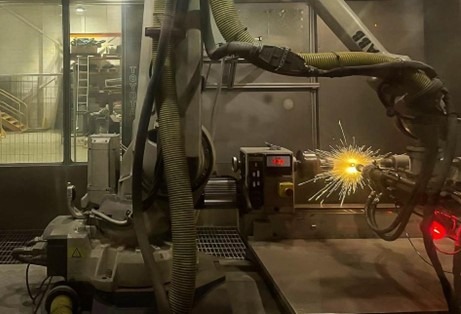EVENT DETAILS
Abstract:
Cold Spray (CS) is an additive manufacturing (AM) process where powder particles are accelerated to supersonic speeds and deposited onto surfaces without melting. CS can be used for both coating surfaces and building 3D objects, with process parameters and materials significantly impacting the final properties of the manufactured parts. Machine learning (ML) techniques are well-suited for optimizing these parameters due to their ability to handle complex, high-dimensional data. This work applies ML to predict four key CS process characteristics: (1) porosity, (2) mechanical properties, (3) particle velocity, and (4) deposition efficiency (DE).
ML models were developed for predicting porosity and DE for various powder materials in CS-manufactured parts. Using datasets sourced from literature and new experiments, data cleaning and feature selection were applied. The porosity models achieved a root mean squared prediction error (RMSE) of 0-2% on unseen data, while the DE models achieved an RMSE under 6%.
ML models focused on predicting part and process properties specifically for cold-sprayed titanium were developed using experimental data from Titomic. A porosity prediction model was developed using 14 recorded parameters to achieve an RMSE of 0.7% on unseen data. Using a novel data binning approach, an ML particle velocity distribution prediction model was developed, that achieved an RMSE of 41 m/s for average velocity and 19 particles for lateral count. Combined with a semi-empirical method, the model predicted DE with an RMSE of 3.2%.
The porosity, particle velocity and DE prediction model for titanium parts were integrated into a model pipeline for the prediction of mechanical properties. This model pipeline achieved prediction errors of 1.89% for elongation, 32.31 MPa for yield strength, and 13.76 MPa for ultimate tensile strength. The pipeline also enabled backward prediction for optimal CS parameters.
About the speaker:
Martin Eberle holds a Bachelor’s and Master’s degree in business administration and mechanical engineering from the Technical University of Kaiserslautern, Germany. His interest in materials research was sparked during his master’s studies, where he developed a test stand to study load transfer in a fiber composite shape memory alloy hybrid. Martin has three years of experience as a Project Manager in both the pharmaceutical and logistics industries.
In 2020, he joined SEAM as a PhD candidate at the Swinburne University node, focusing on parameter optimization in cold spray using machine learning techniques. During his time at SEAM, he published two papers on this subject and presented his work at three conferences. For the past three years, Martin has been working as an engineer at Titomic, a cold spray company based in Melbourne.
PRESENTED BY:
Martin Eberle, PhD Candidate
DATE
17 October 2024
TIME
12:00 pm - 2:00 pm (GMT+11)
Convert to Local Time
LOCATION
BA201, SUT Hawthorn | https://swinburne.zoom.us/j/84073102282 Room: BA201, BA Building
Swinburne University of Technology
27 John St, Hawthorn


